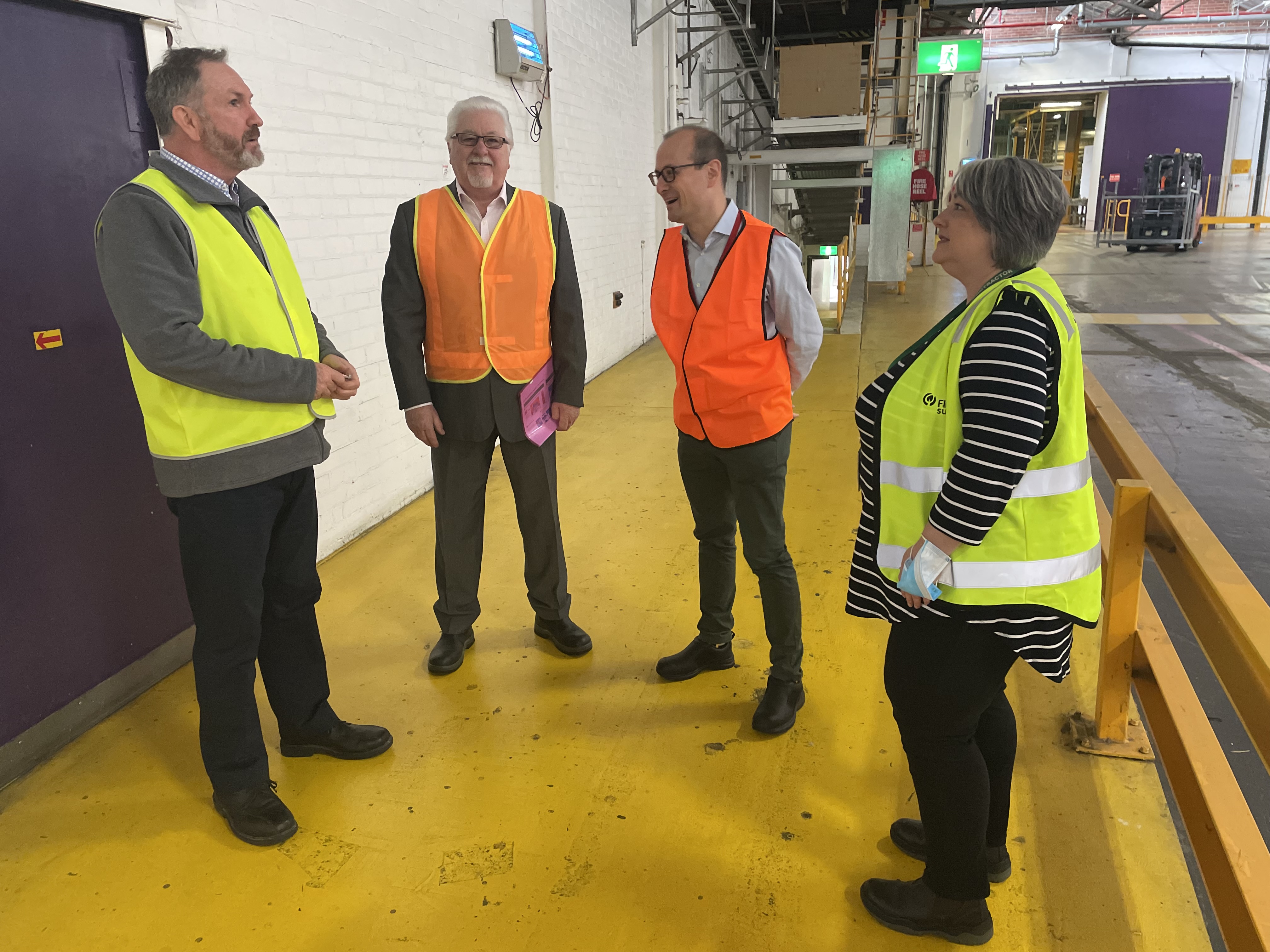
“Consumers today are increasingly conscious about their responsibility to the environment - to the planet - and they are more willing to speak up, ask questions and vote with their wallets. For our business to thrive, we must provide our consumers and trading partners with a high degree of comfort, knowing that our products are made sustainably, with legally sourced virgin fibre, from well run plantations all the way through to the finished goods from responsibly managed mills.”
Steve Nicholson is the Acting CEO for ANZ, which produces a wide range of paper, tissue and hygiene products, including those of well-loved brands like Sorbent, Handee and Cottonsoft for Australia and New Zealand. An industry veteran of nearly two decades, Steve is deeply familiar with the issues of sustainability and governance.
“Public awareness of environmental and sustainability issues is very high in Australia and New Zealand. It is not enough for us to simply put a green label onto our products. At Solaris, our aim is to provide our stakeholders with a transparent dashboard of our complete supply chain so that they can have the highest levels of confidence that we’ve done diligence at every stage, from seed to sheet.”
In Australia, where Steve is based, national legislation prohibits illegal logging and the clearance of vital natural forests. These prohibitions cover all timber products, including raw, intermediate materials or finished products like paper and tissue, regardless of whether they are produced domestically or imported from abroad. Imports must pass very rigorous due diligence requirements upon entry to the country, to ensure that no product from illegal sources can gain access to the market.
Most products today have complex supply chains that span multiple jurisdictions with differing standards and levels of verification. This complexity can make publishing a transparent and verifiable supply chain dashboard an extremely difficult task.
Fortunately, Solaris has managed to find an elegant solution to the problem.
“We source almost all our materials and finished products from just one supplier. This makes verifying legality, sustainability and chain of custody much easier to accomplish.”
All of Solaris’ ANZ business units have a single shared sustainability approach and are all supplied by the same supplier – Asia Pulp & Paper (APP) Sinar Mas, or APP.
“Our Strategic Supply Partner has a zero-tolerance policy toward deforestation, which is backed up by a publicly verifiable Supplier Evaluation and Risk Assessment (SERA) process, and a robust grievance mechanism. This means that we can trace our finished products back to a specific mill and can audit the plantations that supply that mill. In this way, we can discover whether the fibre that is used comes from sustainable and responsibly managed sources.”
Since APP adopted its Forest Conservation Policy in 2013, it has worked tirelessly to provide the same sort of transparent accountability that Steve has outlined. Strict control measures ensure that APP’s supply chain is 100% legally sourced and certified.
This certification is provided by PEFC – the Programme for the Endorsement of Forest Certification – an international, non-profit, non-governmental organization that promotes sustainable forest management. PEFC works with independent and national certification bodies to establish rigorous standards. Due to its local-first, ground-up approach, it is considered the certification system of choice for small forest owners.
Certification certainly plays an important role in ensuring sustainable practices are met, but ever savvy consumers will not be so easily placated.
“Consumers expect more from us than just certification, and rightfully so. If we are to address the pressing climate challenges ahead of us, we need to raise the bar. Looking ahead, I expect the next consumer expectation will be for our products to be carbon neutral across the supply chain.”
The company is already embarking on this journey with its partners to pilot verifiably carbon neutral products for some of its brands in New Zealand. This pilot program will allow Solaris to test various models with the goal of rolling out carbon neutral paper products across both markets soon.
Solaris is also in the trial phases for replacing plastic packaging in retail products with paper-based alternatives, which will make its products wholly biodegradable and renewable.
“Businesses exist to serve their consumers. We aren’t going to be very successful if we try to sell square pegs to round holes. By being sensitive to the aspirations of our consumers and anticipating their evolving needs, by investing in honest change and not just paying lip service to their concerns, that’s how we’re going to succeed.”
